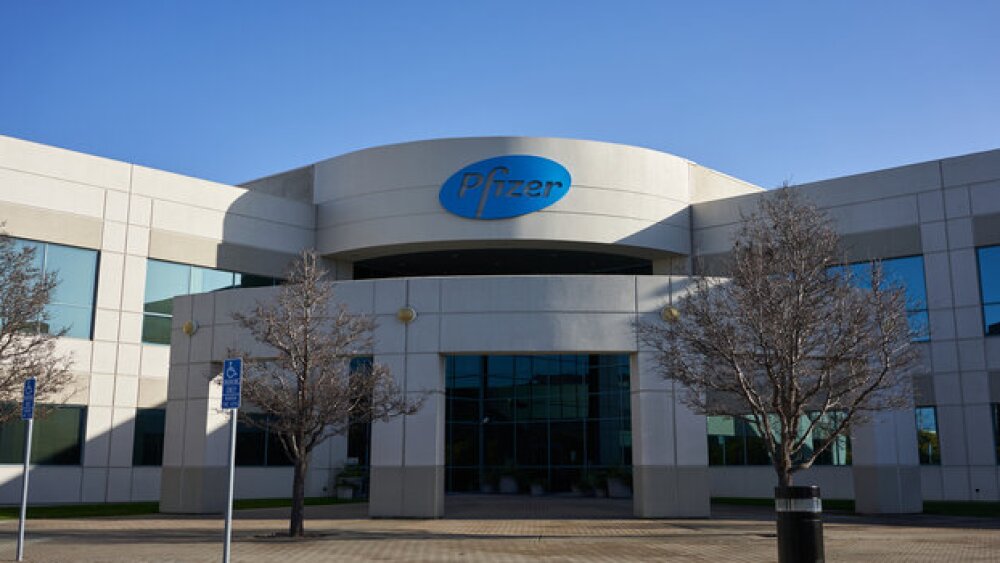Xtandi is now approved to treat nonmetastatic castration-sensitive prostate cancer with biochemical recurrence at high risk for metastasis with or without a gonadotropin-releasing hormone analog therapy.
Pictured: Pfizer building in San Francisco/iStock, hapabapa
Pfizer and Astellas have secured FDA approval in an earlier treatment setting for their blockbuster prostate cancer drug. The companies announced Friday that the regulator approved Xtandi as a treatment for non-metastatic, castration-sensitive prostate cancer with biochemical recurrence at high risk of metastasis.
The FDA’s approval clears Xtandi to be used with or without a gonadotropin-releasing hormone (GnRH) analog therapy. According to the companies, Xtandi is now “the first and only androgen receptor signaling inhibitor approved for use with or without a GnRH analog therapy in nonmetastatic castration-sensitive prostate cancer.”
In the EMBARK trial, the drug reduced risk of metastasis or death by 58% over hormone therapy leuprolide alone. Patients treated with Xtandi combined with leuprolide showed an 87% metastasis-free survival rate at five years. Xtandi as a monotherapy had an 80% metastasis-free survival rate while the leuprolide only arm came in at 71%.
Prior to this approval, treatment options have “not progressed our evidenced-based care for patients with biochemical recurrence,” Neal Shore, primary investigator of the EMBARK trial, said in a statement. The approval was accelerated by the FDA’s Priority Review and Fast Track programs.
According to Pfizer and Astellas, an estimated 20% to 40% of men experience biochemical recurrence (BCR) after prostate cancer treatment within 10 years. In high-risk BCR patients, 90% will develop metastatic disease and one in three will die from it.
“With today’s approval, we look forward to bringing this therapy to even more patients who have nonmetastatic castration-sensitive prostate cancer at high risk for their cancer metastasizing,” Chris Boshoff, executive vice president at Pfizer, said in a statement.
Over 300,000 men have already been treated with Xtandi, with more patients now able to qualify with the expanded indication. In 2022, global sales of the drug were over $5.8 billion. In March 2023, the U.S. government declined a petition requesting use of “march-in” authority to force Pfizer and Astellas to lower Xtandi’s price tag.
However, the partners will only enjoy a few more years of this level of profitability as patent protection for Xtandi is set to expire in 2026 and 2027 in Japan and the U.S., respectively.
In June 2023, Xtandi got FDA approval to treat HRR gene-mutated metastatic castration-resistant prostate cancer in combination with Pfizer’s Talzenna.
Kate Goodwin is a freelance life science writer based in Des Moines, Iowa. She can be reached at kate.goodwin@biospace.com and on LinkedIn.






